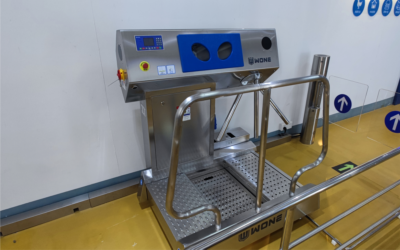WHAT ARE THE HYGIENE DESIGN REQUIREMENTS?
 When it comes to maintaining cleanliness and preventing the spread of harmful pathogens, hygiene design requirements play a crucial role. Businesses and industries across various sectors are realizing the importance of incorporating hygiene design into their facilities. This is where hygiene equipment suppliers come into play, providing the necessary tools and equipment to meet these design requirements effectively.
When it comes to maintaining cleanliness and preventing the spread of harmful pathogens, hygiene design requirements play a crucial role. Businesses and industries across various sectors are realizing the importance of incorporating hygiene design into their facilities. This is where hygiene equipment suppliers come into play, providing the necessary tools and equipment to meet these design requirements effectively.
Hygiene design refers to the intentional design and construction of facilities and equipment to minimize the risk of contamination and promote proper sanitation practices. Whether it's in food processing plants, healthcare facilities, or even public restrooms, maintaining high levels of hygiene is of utmost importance to ensure the safety and well-being of individuals.
One of the critical aspects of hygiene design is the integration of appropriate equipment. Hygiene equipment suppliers play a significant role in providing businesses with the necessary tools to meet hygiene design requirements. These suppliers offer an extensive range of equipment such as stainless steel sinks, handwashing stations, sanitary hand dryers, and much more. These products are specifically designed to meet the strict hygiene standards prescribed by regulatory bodies.
In the food processing industry, for example, hygiene design requirements are essential to prevent cross-contamination and ensure food safety. Equipment such as stainless steel workstations, cutting boards, and sinks are must-haves in these facilities. These materials are easy to clean, resistant to bacterial growth, and able to withstand rigorous cleaning procedures. Hygiene equipment suppliers specialize in providing businesses with these specific requirements to maintain a hygienic environment, minimizing the risk of foodborne illnesses.
In healthcare facilities, hygiene design requirements play a crucial role in preventing the spread of infections and diseases. Suppliers offer specialized products such as touchless soap dispensers, automatic hand sanitizers, and antimicrobial surfaces. These products help healthcare workers maintain proper hand hygiene, reducing the risk of nosocomial infections. They are designed to be easily cleaned and replenished to ensure a continuous supply of hygiene materials.
Public restrooms are another area that requires strict adherence to hygiene design requirements. When it comes to selecting equipment for these facilities, hygiene equipment suppliers offer a wide range of options. From touchless faucets to automatic flush toilets and hand dryers, these suppliers ensure that public restrooms are equipped with tools that promote cleanliness and reduce the spread of germs.
In conclusion, hygiene design requirements are crucial for businesses and industries across various sectors. Incorporating proper hygiene design not only ensures the well-being and safety of individuals but also helps businesses comply with regulatory standards. Hygiene equipment suppliers play a vital role in providing businesses with the necessary tools and equipment to meet these design requirements.
Whether it's in the food processing industry, healthcare facilities, or public restrooms, these suppliers offer a wide range of products designed to promote cleanliness and prevent the spread of harmful pathogens. By partnering with hygiene equipment suppliers, businesses can create a hygienic environment that prioritizes health and safety. So, if you're looking to meet hygiene design requirements, consider reaching out to a trusted hygiene equipment supplier to equip your facility with the necessary tools to maintain cleanliness and reduce the risk of contamination.


